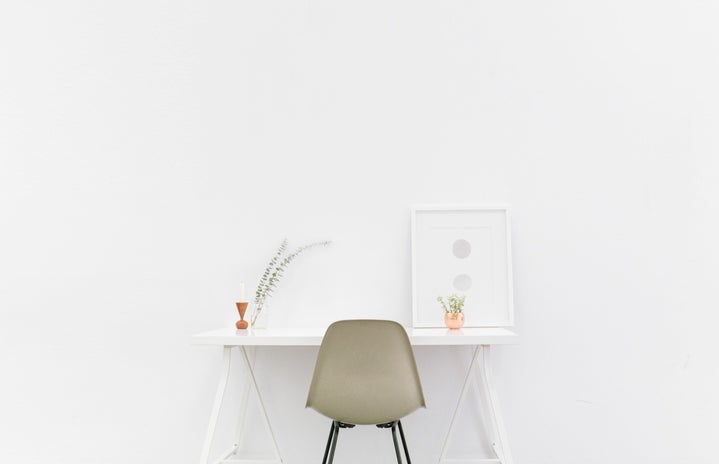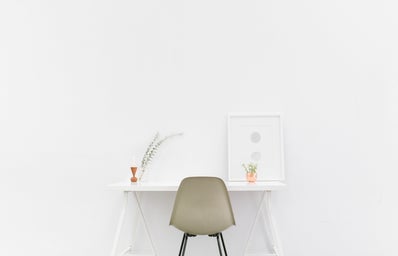Sometimes less really is more.
This realization came to me one morning as I was idly scrolling through social media. Since I’m a little bit into everything, my feed can often seem a bit eclectic. However, as I continued to look at the recent posts from some of my favorite accounts, I couldn’t help but feel overwhelmed. Whether it was pictures of the season’s newest clothes, technology, knick-knacks, stationary, shoes, souvenirs, books, etc., everyone seemed to have a lot of stuff.

To make myself completely clear, I am in no way judging or shaming anyone for the amount of stuff they own. I completely respect everyone’s individual right to spend their money in any way they choose to, and I think that people’s different preferences when it comes to the things they do or don’t own help generate dialogue around consumerism.
However, after a lot of personal reflection, I can confidently say that I’m definitely someone who functions better when given the bare minimum. It’s no secret that there are a lot more brands and companies today than there were ten or twenty years ago. Today, the market is constantly being flooded with the newest releases for everything imaginable. As a result, advertising has significantly increased to the point where it is almost impossible to go outside without being bombarded by advertisements.

As I continued to be captivated by fancy and clever advertising, the packages on my doorstep slowly began to increase while my bank account balance decreased. Though I didn’t necessarily regret any of the things that I had purchased, a steadily growing feeling of unease began to creep into my mind as I stared at the overwhelming pile of things.
Thoughts such as “what am I going to do with all this stuff?” and “how am I ever going to be able to use everything?” repeated over and over in my mind. I started to spend most of my time focusing on how to effectively put things to use instead of prioritizing other tasks and responsibilities. It wasn’t until I decided to take a break from social media that I began to reflect on myself as a consumer and an individual.
It took a while, but I finally began to realize that I was buying things as a way to both relieve stress and create some control during an unpredictable time. I hadn’t realized it, but the stress of quarantine and COVID-19 was beginning to take its toll on me, and as a result, I turned to purchase things as a way to distract myself.
Shortly after that realization, I began to become extremely invested in minimalism. Minimalism means something different to everyone, but for me, being minimal is being mindful of the difference between what you do need and what you want. Also, it’s important for me to consider how much use I’m going to get out of something and compare what I’m thinking about buying with what I already have.
Not only is my wallet significantly happier with my new perspective on consumerism, but my mental health has improved a lot. Once I got a grasp on the things that I needed in my life, I was able to tune out the flashy ads that companies use to lure consumers into spending their money.
In today’s society, it’s easy to be drawn into buying what other people have even if you personally don’t need it. Getting in touch with what works best for your individual lifestyle will not only save you money, but it can help reduce any pressures to look or own certain things that are shown in mainstream media.
I wasn’t exactly sure how minimalism would fit into my life when I was first learning about it, but now, I’m able to apply minimalist into every aspect of my life in different ways. What first started as a way for me to decrease my spending, ended up improving my mental health and my perspective on life.



